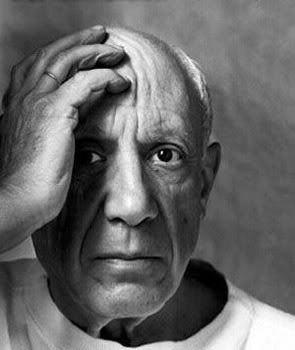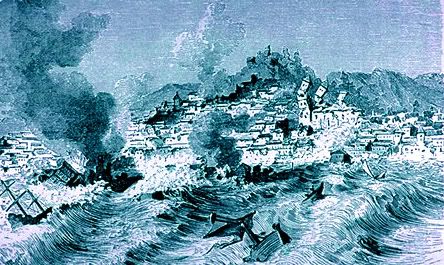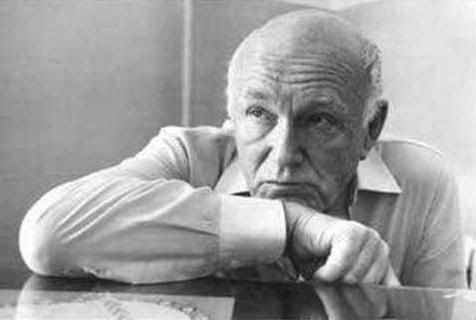Given that Reflecting Light has a fair number of posts under the "Paranormal" heading, it might seem odd that UFO phenomena have been almost completely neglected. (Here's the only exception.)
From time to time I have looked at UFO studies web sites, and on the whole it has been an unrewarding experience. You can find whole cosmologies -- I'm almost tempted to write ideologies -- about UFOs. Various species of aliens (grays, Pleiadeans, blues, oranges, etc.) are authoritatively described. There are disturbing accounts of an underground facility housing aliens where dreadful experiments are carried out on aliens, or humans, or both. Ultimately all a rational person can do is file this stuff under "Hmmmm." And, not surprisingly, adherents of various schools of ufology can be quite unkind about one another's alleged ignorance or misunderstanding.
Almost everyone in the field agrees about the importance, although not the facts or details, of the UFO said to have crashed near Roswell, New Mexico, on or about July 4, 1947. Here, if anywhere, we should be able to examine the evidence objectively.
Kevin Randle and Donald Schmitt seem to have made a serious effort to do that in their book, The Truth About the UFO Crash at Roswell, which I read recently. It was published in 1994, and while there have been Roswell books since and doubtless will be many more, this is among the last to be based on interviews with people or close relatives of people involved with events immediately following the crash. By now the eyewitnesses have almost all left this life, so unless some new physical evidence turns up, this may be as close as we are going to get to knowing what happened.
The authors slightly alienated me (pun intended, as usual) by a sentence in their very first paragraph: " ... In New Mexico, where the population is still sparse, it is fortunate that there was anyone around to see what might be considered the major event of the last one thousand years."
Even supposing, as the book tries to show, that a UFO crash occurred, debris was recovered, and alien bodies were found, I am slow to see why it should be considered the major event since the year 994. What is so important about life on, or from, other planets? We have still not finished finding all the species on earth. The possibility of extraterrestrial life is interesting, but is it more interesting than finding a living coelacanth, formerly thought to have exited the stage 65 million years ago?
If I have a somewhat negative attitude (or prejudice, if you prefer) toward UFO researchers, it is because of this notion that extraterrestrial life is a complete game changer. I suspect the great majority of ufologists are scientific meterialists. Based on such evidence, or speculation, as now exists there appears no reason to think that UFOs have any particular spiritual meaning.
Life has evolved in different forms for different environments; we see that all around us on earth; what's the big deal if it happened on other planets as well? Even if some alien races have evolved spiritually beyond most humans (an idea for which there is little evidence), the human race has also produced men and women who have been highly evolved spiritually: the Buddha, Jesus, saints, mystics. Fewer people than ever today try to emulate them. Why would they do any better following teachers from another solar system?
Now I've gotten that out of the way, I can recommend Randle and Schmitt's book, with a few reservations. Their dedication is admirable. They spent five years or so conducting personal interviews with every available persona dramatis, in some cases several times. The authors went to great lengths to track down anyone who might be able to shed light on any aspect of the case. They persisted in an often frustrating document search as well.
Truth is written fairly clearly, but not too well edited; a lot of the testimony and proclaimed facts are repeated several times, although in different contexts. Even that has an upside, because it helps to understand who all the players were, and there were surprisingly many people involved in some aspect of the purported crash, recovery, and subsequent cover-up.
Unless Randle and Schmitt made up the witnesses' words (unlikely, and some of them were recorded) or the witnesses themselves were being economical with the truth, it's hard not to accept the crash and cover-up story at least in its broad outlines. (It's also chilling to read, according to several witnesses, that they and their families -- civilians -- were threatened by the army with being killed if they ever breathed a word of what they saw.) The book's tone is pleasingly straightforward, sticking to what the authors believe the evidence shows, without extravagant theorizing about the nature and purpose of the alien visitors.
It also perhaps enhances Randle and Schmitt's credibility that they consider the famous Majestic-12 documents to be a hoax.
No one source, or perhaps all sources put together, can tell us for sure what happened at Roswell. But for the curious, Truth is worth looking into.




























